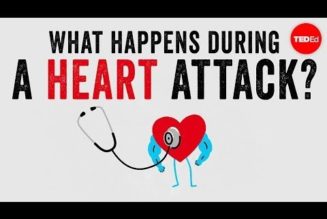With the news that the coronavirus is spreading, it’s only a matter of time before people start to think—wait, do I have the coronavirus? At this point it’s still extremely rare, and your cough is far more likely to be a cold or flu. Still, here’s what you should do.
Check if your symptoms actually match
While the coronavirus is a respiratory disease similar to a cold or flu, there’s a notable symptom that’s missing in nearly all cases: a runny nose.
If you’re sniffling and sneezing up a storm, it’s very unlikely you caught COVID-19. As the World Health Organization points out, so far 90% of patients had a fever and 70% had a dry cough; these are the typical symptoms.
Even if you have a fever and a cough, please don’t panic. Colds and flu circulate year round and increase every winter, and this year is no exception. As long as COVID-19 is rare, the overwhelming probability is that your cough is caused by something far more common and ordinary.
Advertisement
While anybody can get this virus, it seems to be most serious in people who are older, and who have other health conditions including chronic respiratory problems.
For reasons we don’t yet understand, children don’t seem to get severe cases. Any of this information could change as we learn more about the virus, but if you’re a parent the fact that as of last week no children under age 10 have died of the virus should provide some reassurance.
Advertisement
Always seek help for shortness of breath or chest pain
It doesn’t matter what viruses are circulating; shortness of breath is a concerning condition, and so is chest pain. Seek medical care if you have these symptoms. Maybe it’s coronavirus, maybe it’s something else threatening your health.
Advertisement
Don’t just show up
Especially if you think you have a contagious and serious disease, don’t just walk into an ER or urgent care if you have other options. This is a rule not just for coronavirus, but also for measles and other diseases that could be serious.
Advertisement
If you have a relationship with a primary care provider, call them up and ask for advice. They may say to come in, but they may also be able to save you a trip. Video visits (through a service like Teladoc, Amwell, or whatever company your insurance plan suggests) can be handy so you can rest instead of leaving the house. But even if you plan to stop by a clinic, still call ahead if you actually think you might have a dangerous, communicable disease.
And if they do suspect that you have COVID-19 (or another disease they’re concerned about), they may give you special instructions on where to go and how to minimize the chance of spreading what you have to other people at the facility. For example, you may be asked to wear a face mask, be especially vigilant about washing your hands, and to go to an area other than the communal waiting room. (Here are the CDC’s instructions for healthcare providers, if you’re curious.)
Advertisement
Stay home if you could be contagious
People with COVID-19, or who think they may have been exposed to it, are being asked to stay home as much as possible. Travel to doctors’ appointments as needed, but otherwise do your best to avoid running errands, going to school, working outside the home, or taking public transit. This may be easier said than done, but it’s worth showing your employer the CDC’s recommendations for businesses if they balk at allowing you to stay home.
Advertisement
Protect the people you live with
While you’re staying home, that means the people who live with you may be at risk of picking up the virus from you.
Advertisement
The CDC has recommendations for partners, roommates, and caregivers to avoid spreading the infection. Among them:
- The sick person should use a separate bedroom and bathroom if possible.
- Both of you should wear a face mask when you’re in the same room.
- Everybody should be washing their hands and practicing proper cough etiquette (use your elbow or a tissue, dispose of tissues properly).
- The sick person should avoid contact with pets, if possible. We don’t yet know whether COVID-19 can be transmitted to and from animals. It probably isn’t an issue with household pets, but the CDC recommends this step just in case.
- Clean “high touch” surfaces every day, including doorknobs, keyboards, countertops, and bathroom fixtures. Clean up bodily fluids, of course, and use gloves and a mask while you do it. Keep up with the laundry.
- Monitor the patient’s symptoms and help them follow their provider’s instructions.
Advertisement
Mainly, you’re trying to keep things clean and keep healthy people away from close contact with the sick person. If you’re on your own, do your best to take care of yourself along the same lines. Keep things clean, wear a facemask if you need to be around other people, and tell would-be visitors it would be better to Facetime instead.









